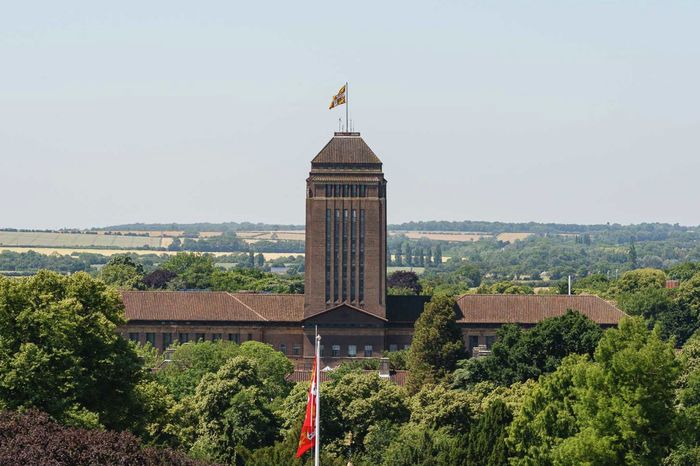News in Brief: cats, Camelot, and construction woes
A light-hearted round-up of the latest news from around Cambridge
Cambridge Festival debuts play on the nuclear a-paw-calypse

On Saturday (5/4), the annual Cambridge Festival premiered the play “Not for a Cat: A Play for the Nuclear Age,” first written in the 1950s by a Cambridge University alum. Wallace R. Harper, who studied at the Cavendish Laboratory in the 1920s, wrote the play during the height of Cold War nuclear anxiety. It follows the story of a cat called Cara, who leaves a dinner party and makes her way into a nuclear reactor and must be rescued by her owner David. Harper’s granddaughter, Karen, unearthed the manuscript and contacted the Lady Margaret players, who put on the performance at St John’s College. Director Eliza Ousey said that the play’s “depiction of nuclear anxiety is fresh, relevant and darkly comic”.
Developers antsy for Anstey building permission
An appeal has been launched against a Cambridge City Council decision that denied the building of 87 flats for retirees. The plan to build new accommodation on the grounds of 17th century Anstey Hall has been refused twice by the council, citing fears that it would “significantly encroach into existing protected open space,” and branding the flats’ design as “incongruous” to the Grade II* listed building. In response, the developer, Trumpington Investments Ltd, has appealed the decision, saying that their development would help provide some of the £1.1m of funding needed to restore Anstey Hall. In a statement, they said: “with the owner John de Bruyne now 80 years old, we need to decide on a long-term use that will ensure that Anstey Hall can continue.”
Police (construction) holdup!
The opening of the new Cambridgeshire police station, currently under development, has now been delayed until Spring 2026. The £45m construction project began in January 2024 and was initially set to open this November. However, the opening date has now been pushed back by around five months, with a Cambridgeshire Police spokesperson saying that “We are approximately 30% through the build.” The new station, located by Milton Park and Ride, will replace the current Parkside station, and have double the number of cells, as well as solar panels. The move is set to bring a reduced police presence in Cambridge city centre.
UL machinery magic reveals Merlin myths
Cambridge University researchers have unearthed and deciphered a 13th century manuscript containing a sequel to the legend of King Arthur. The Old French text is part of the Suite Vulgate du Merlin, part of the Lancelot-Grail mythic cycle. It describes a battle fought by Gauvain, and the sorcerer Merlin disguising himself as a harpist at Arthur’s court. The manuscript, which dates from between 1275 - 1315, survived over 700 years by being repurposed in the 1500s as the cover of a property record for Huntingfield Manor in Suffolk, which then ended up at the UL. To decipher the text, which had been folded and sewn into a cover, researchers employed a variety of pioneering digital techniques. Many Cambridge departments contributed to this interdisciplinary approach, including the Zoology department, whose X-ray machine (normally used for fossils) helped to uncover layers of parchment. Such techniques allowed the material artefact, which is, according to Dr Fabry-Tehranchi a “piece of history in its own right” to remain intact while the text was reconstructed.
 Arts / Plays and playing truant: Stephen Fry’s Cambridge25 April 2025
Arts / Plays and playing truant: Stephen Fry’s Cambridge25 April 2025 News / Candidates clash over Chancellorship25 April 2025
News / Candidates clash over Chancellorship25 April 2025 Music / The pipes are calling: the life of a Cambridge Organ Scholar25 April 2025
Music / The pipes are calling: the life of a Cambridge Organ Scholar25 April 2025 Comment / Cambridge builds up the housing crisis25 April 2025
Comment / Cambridge builds up the housing crisis25 April 2025 Comment / Pick an exam format and stick to it25 April 2025
Comment / Pick an exam format and stick to it25 April 2025






